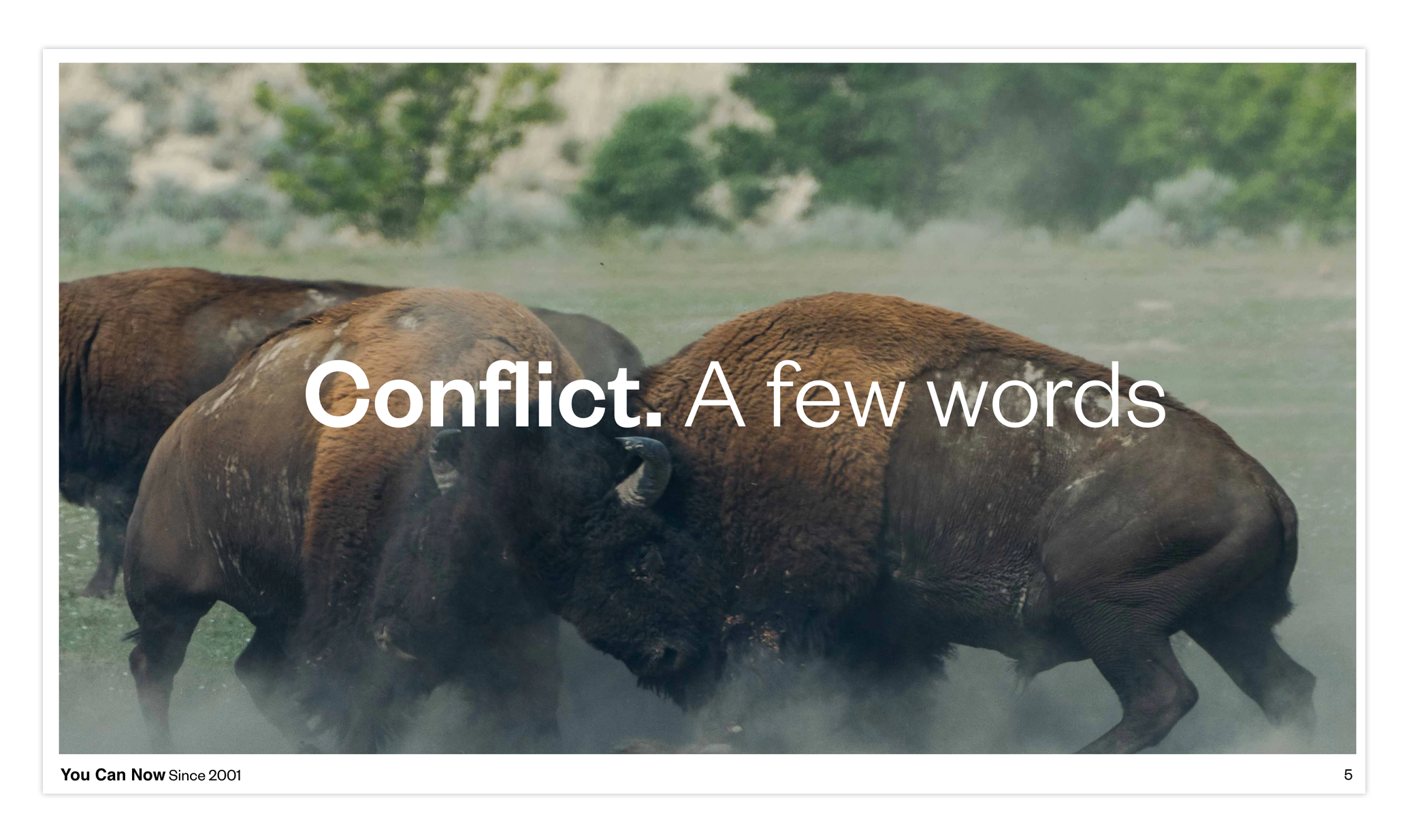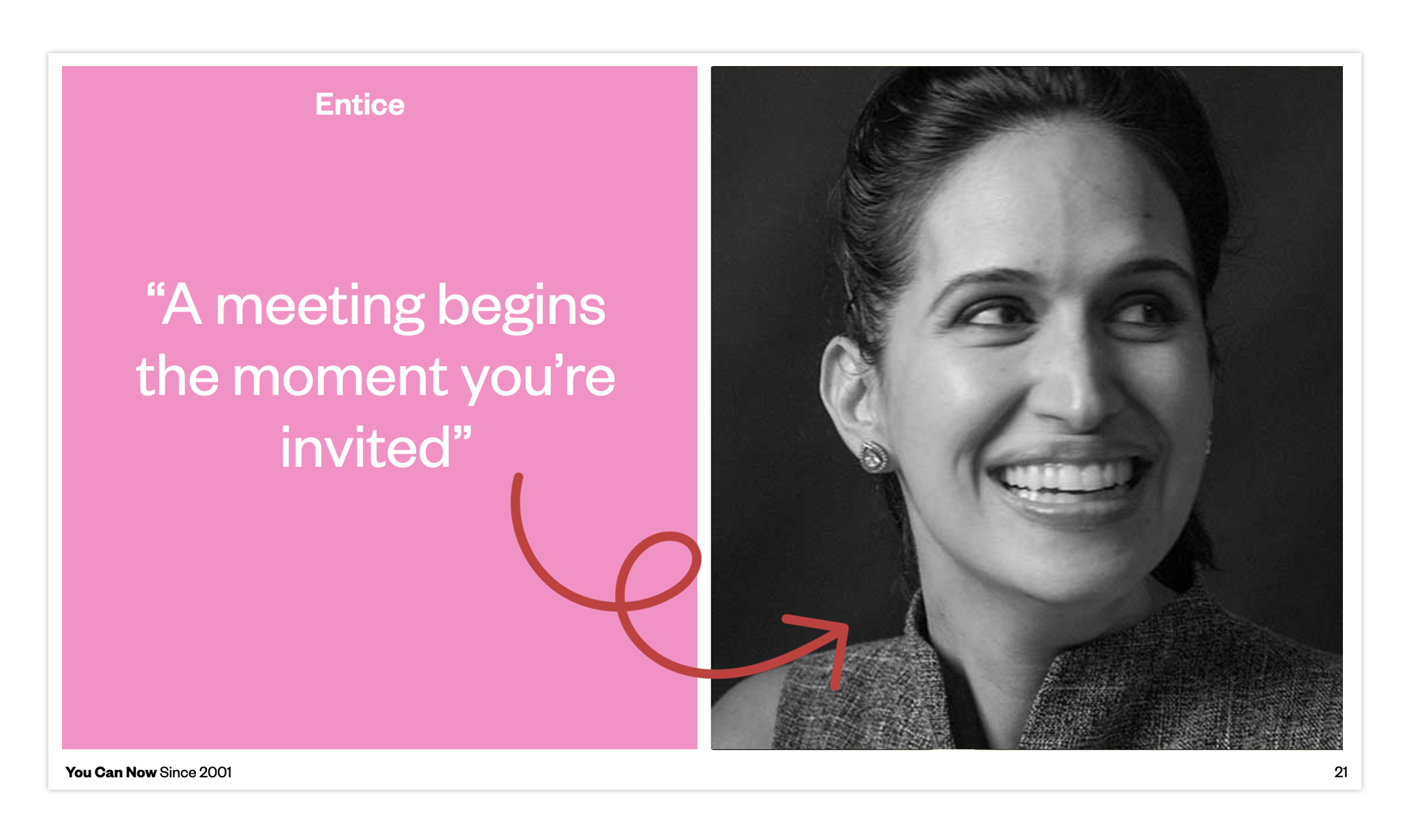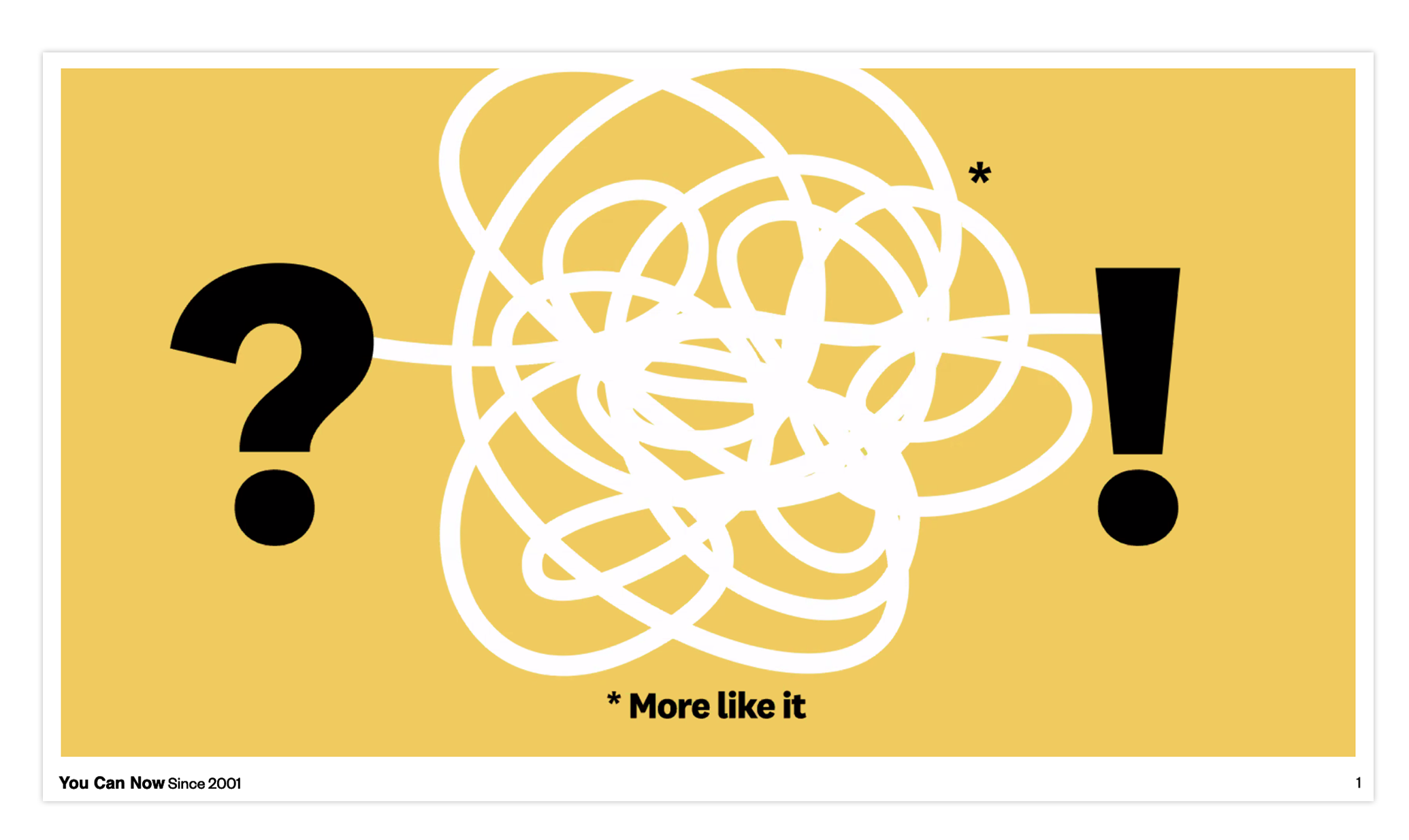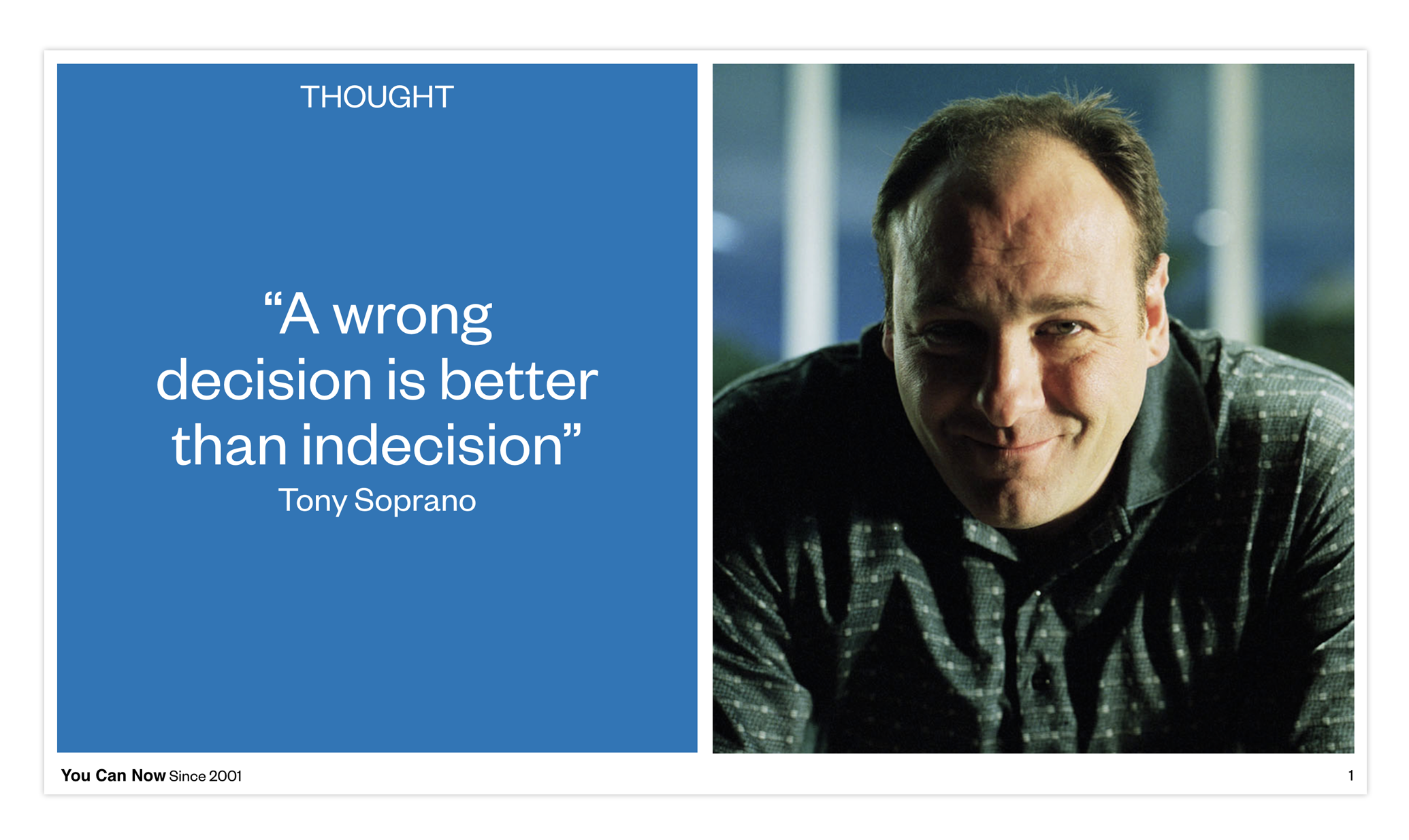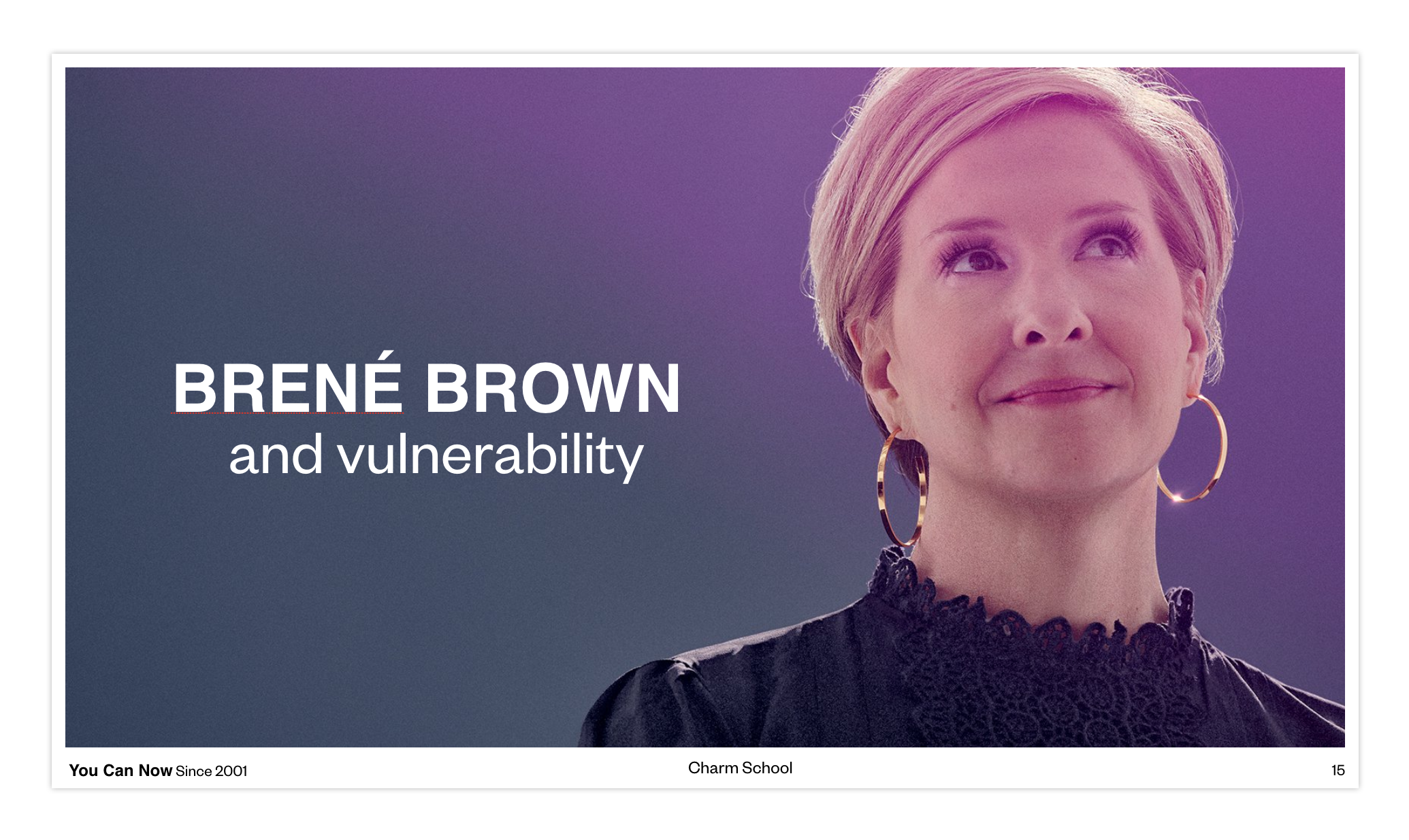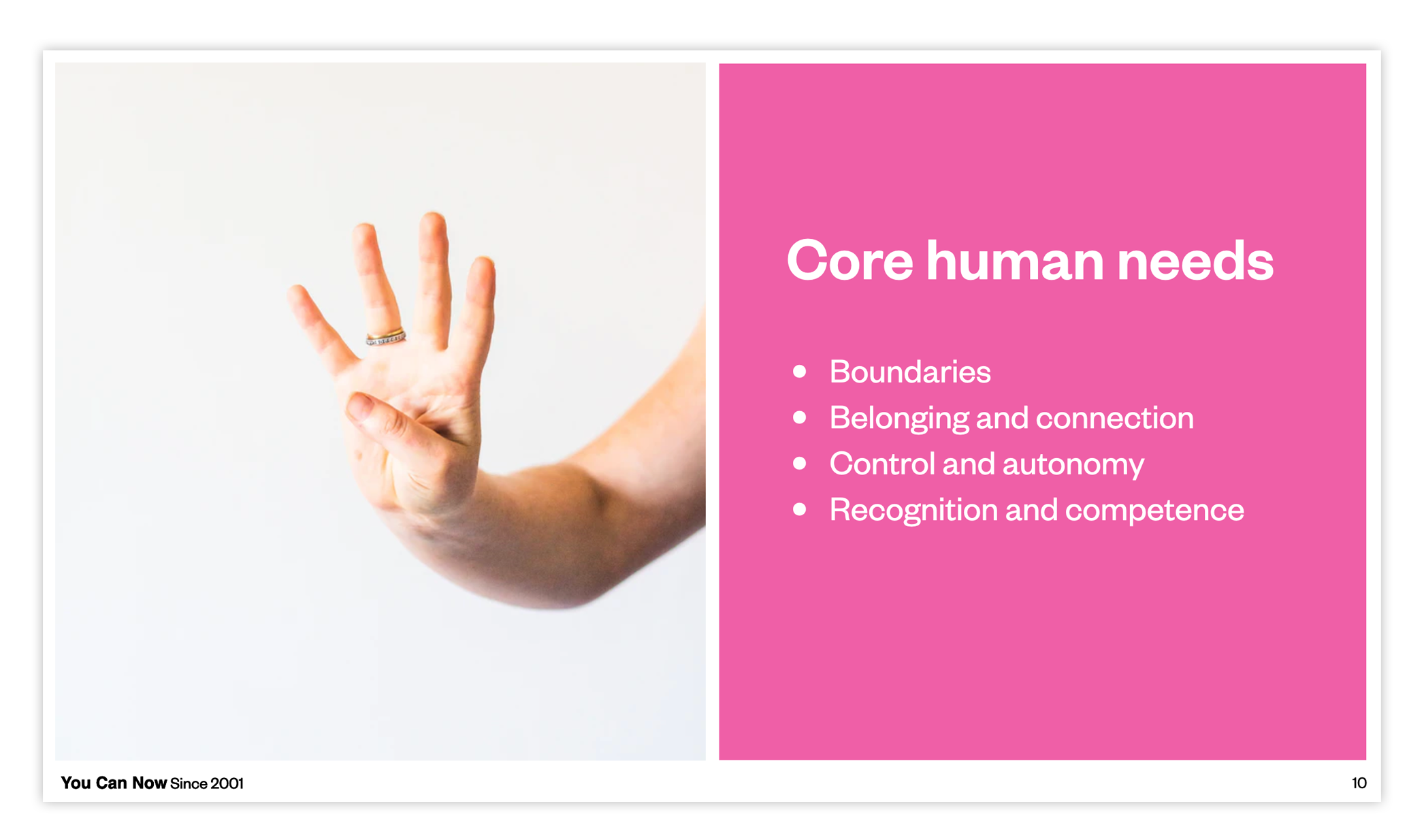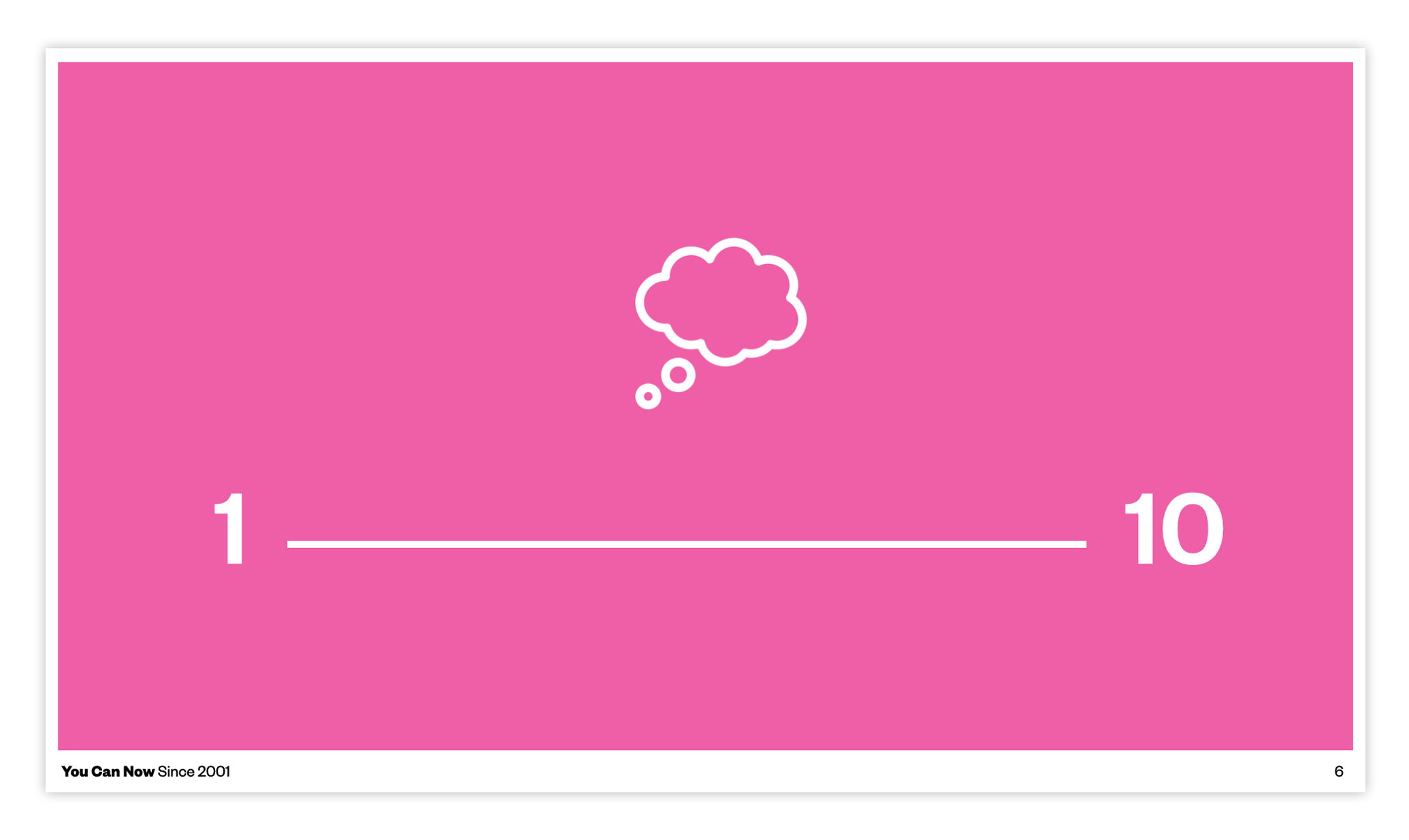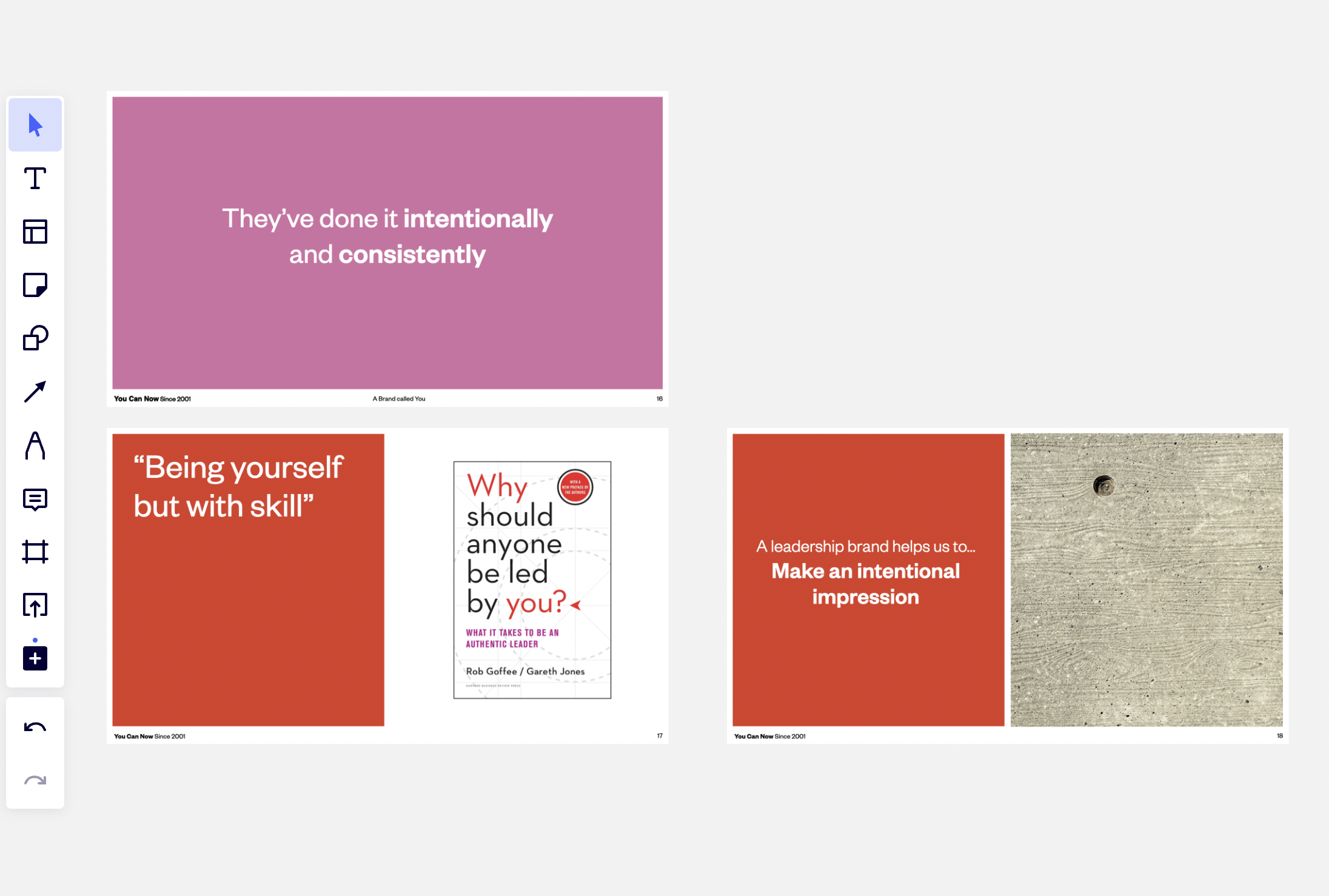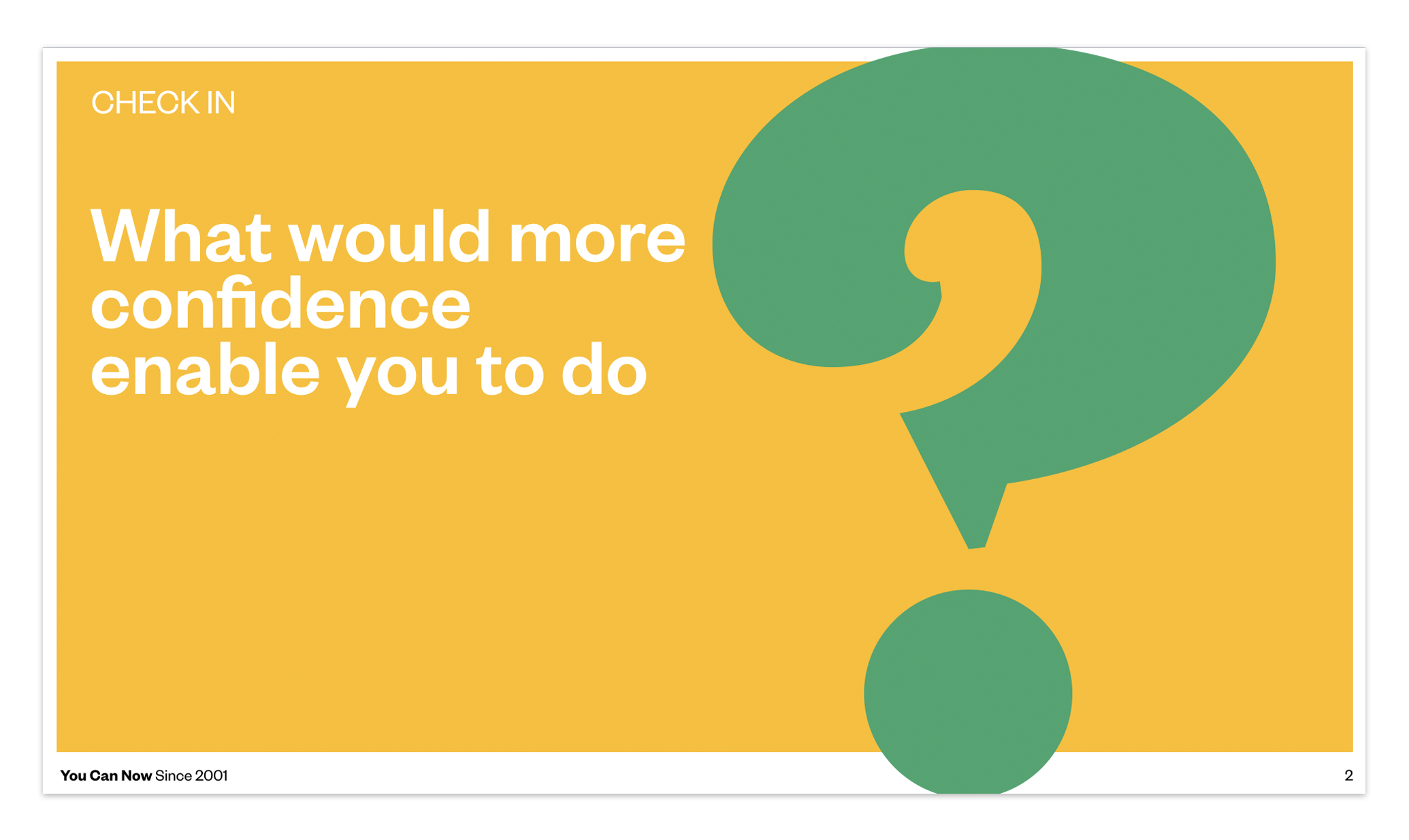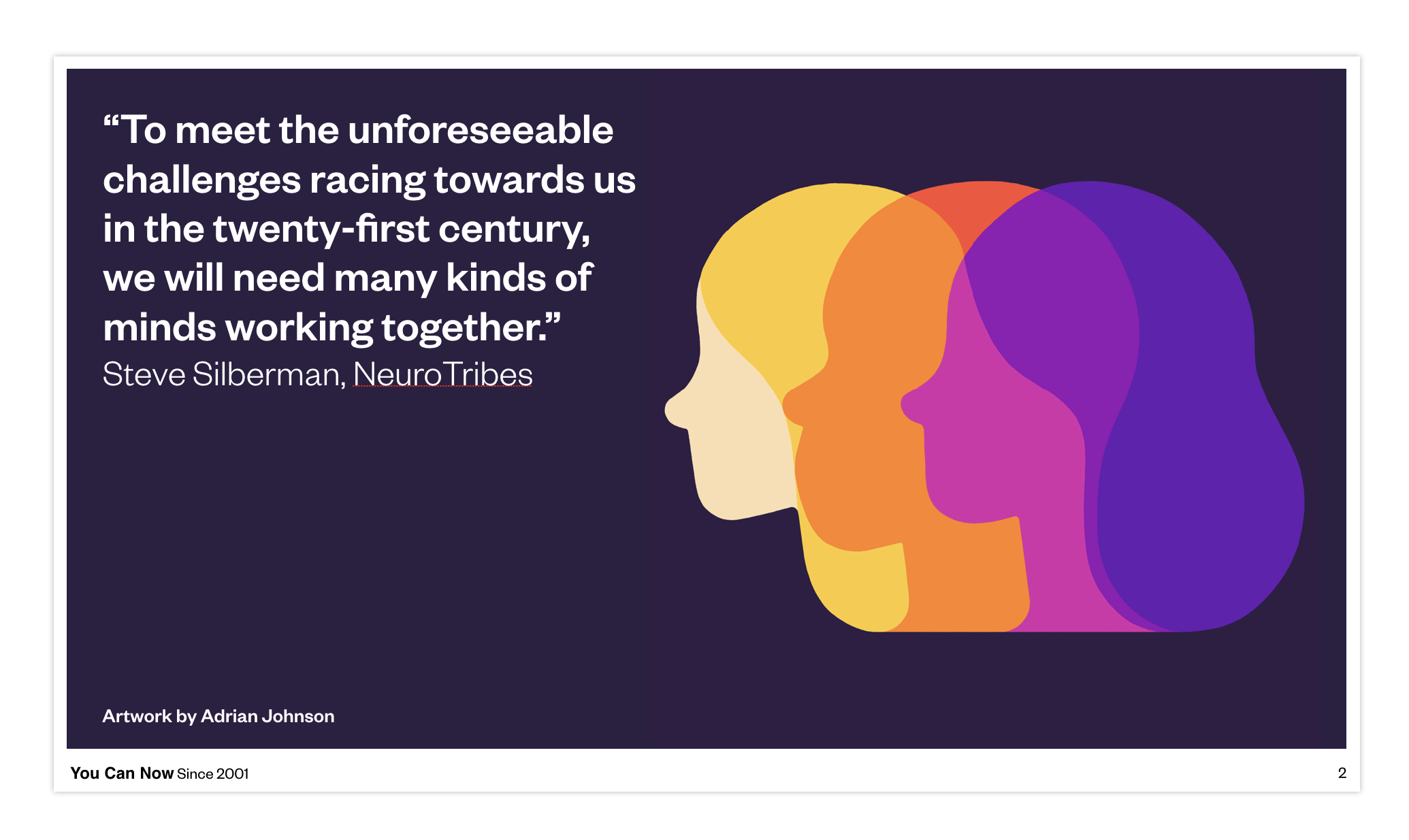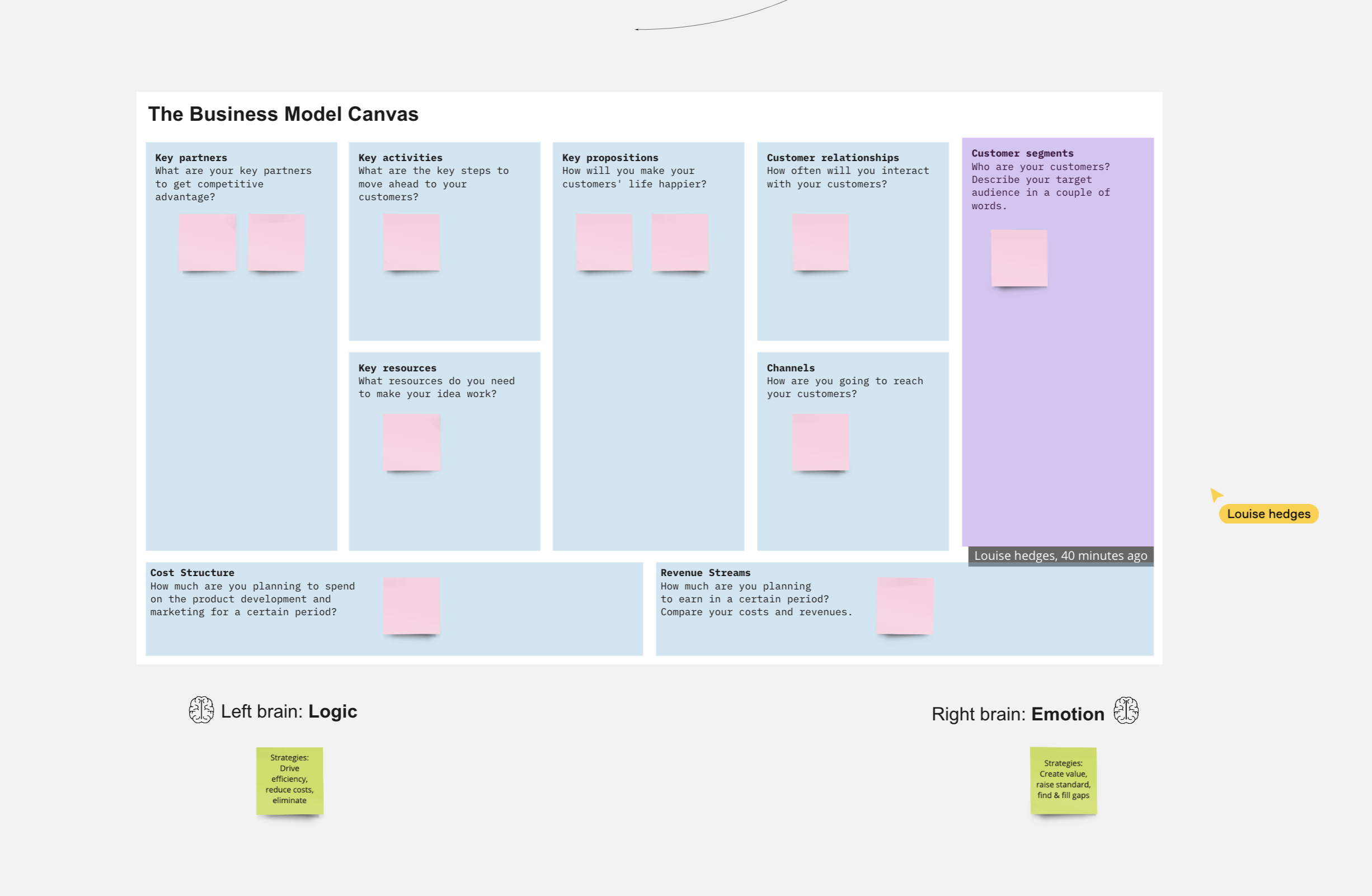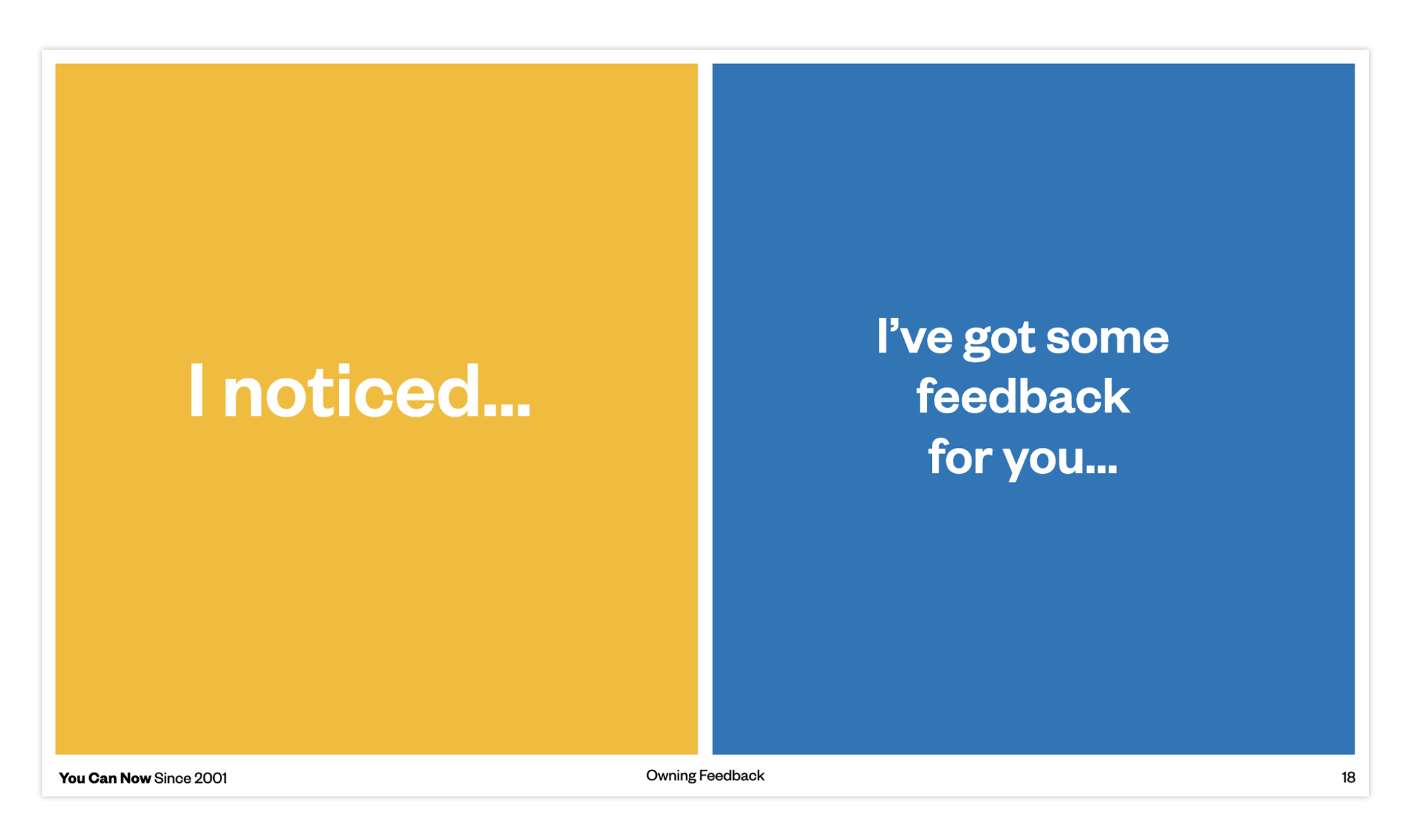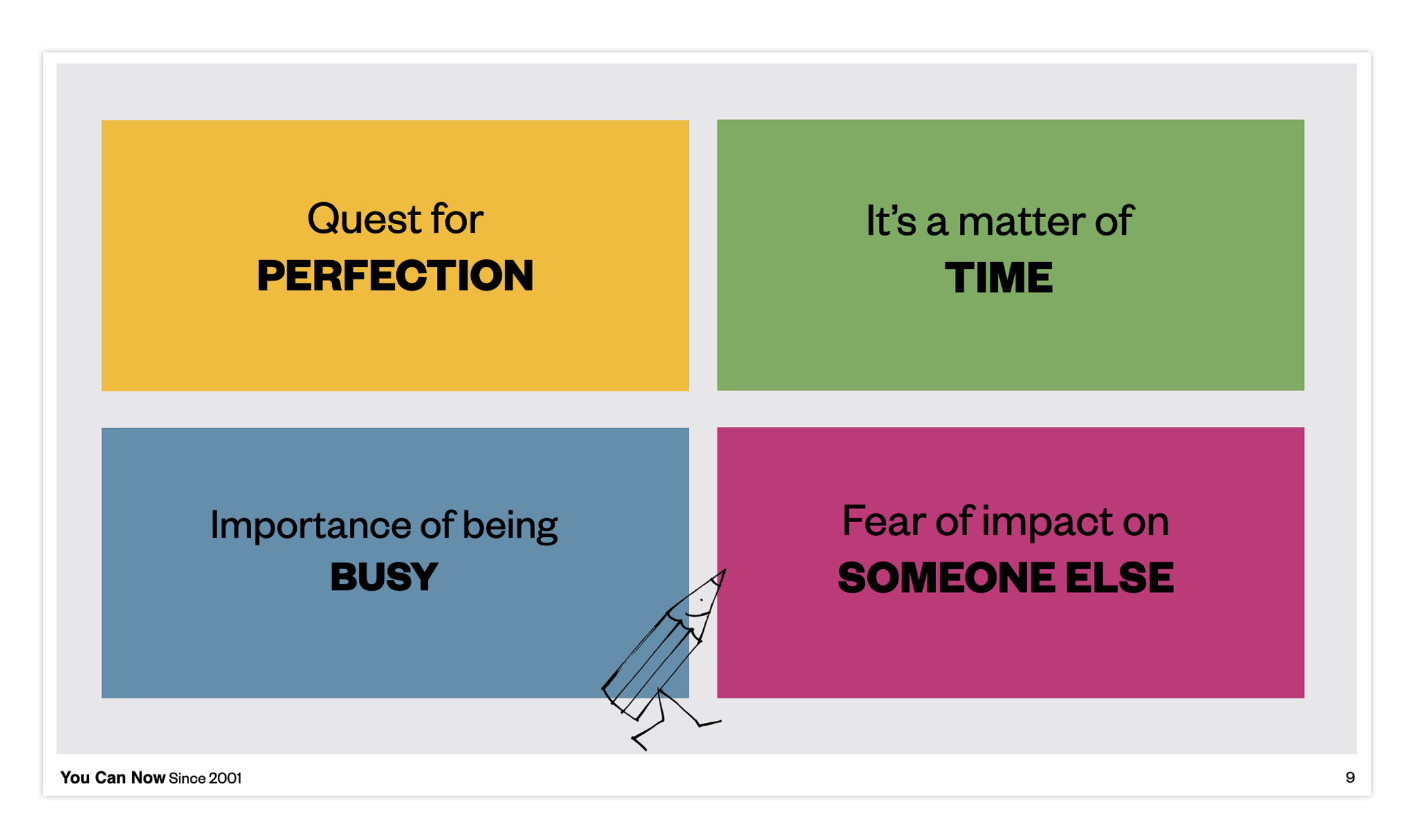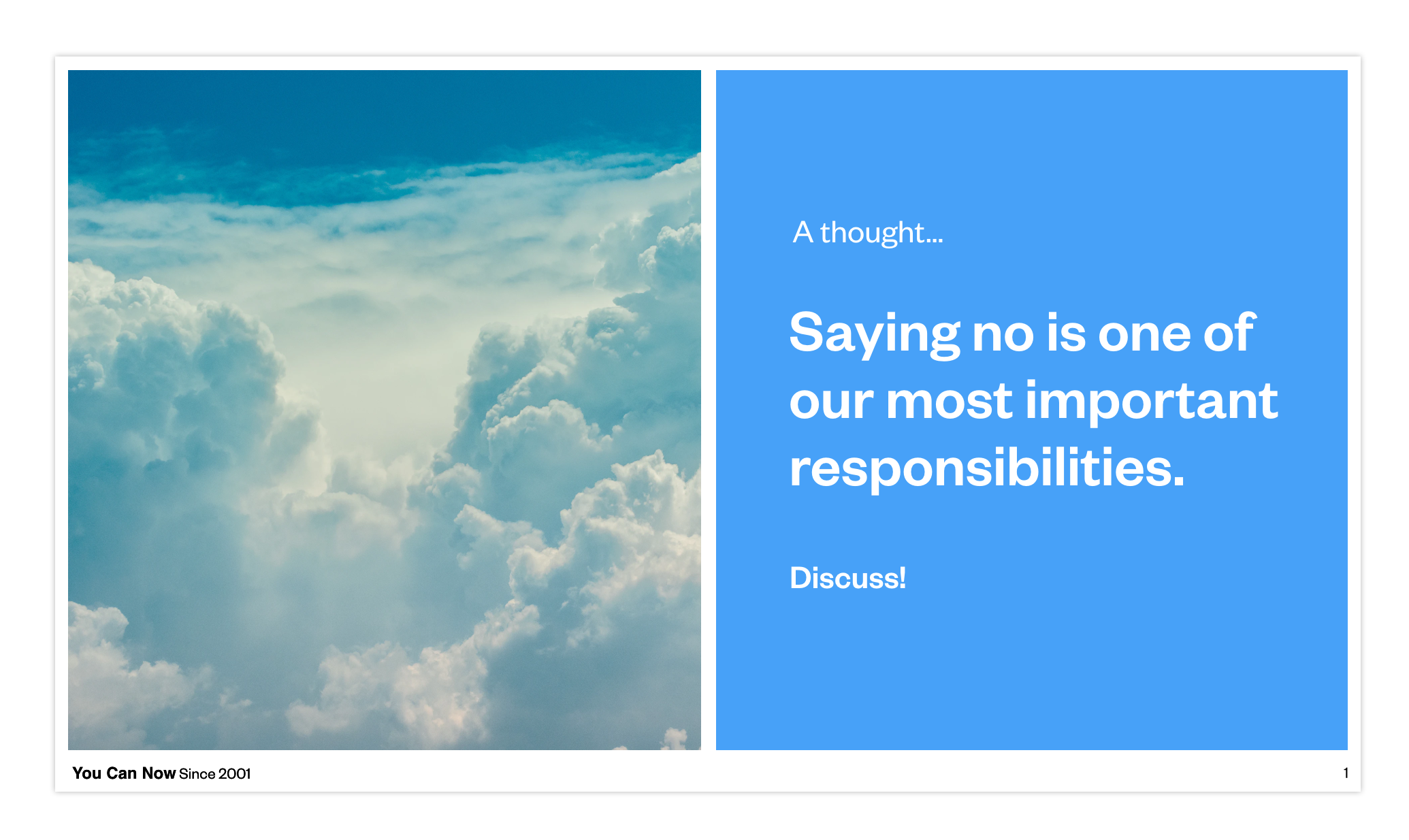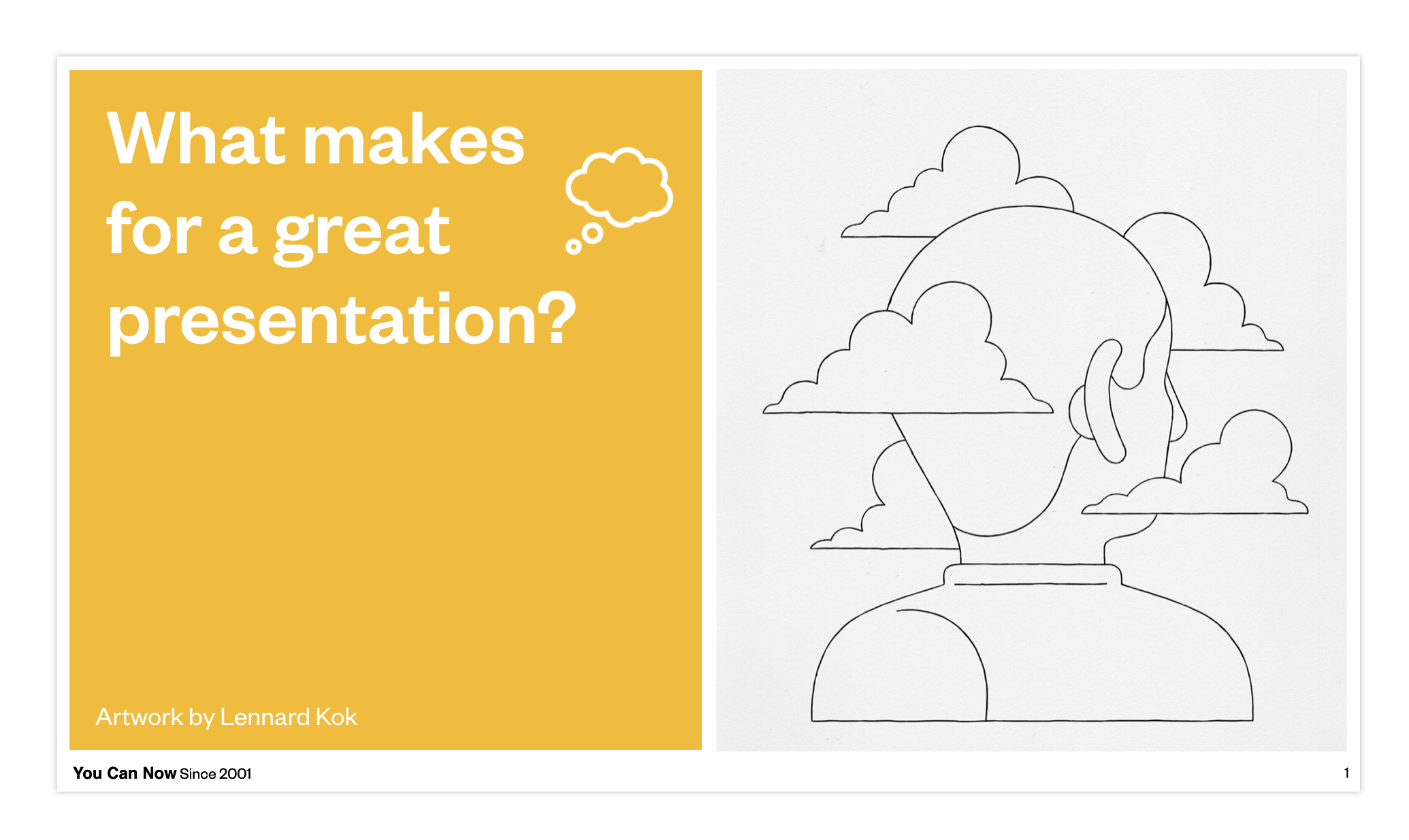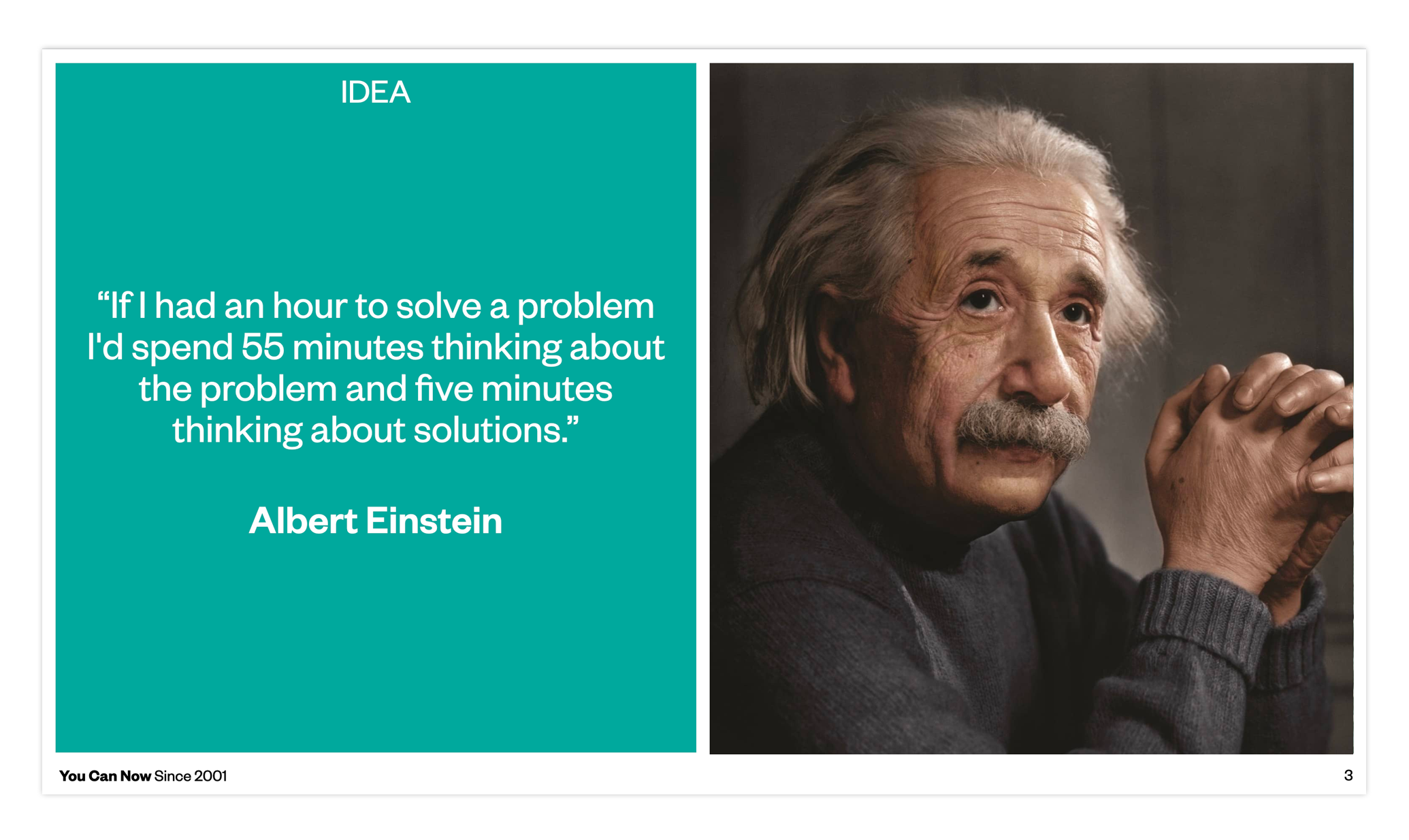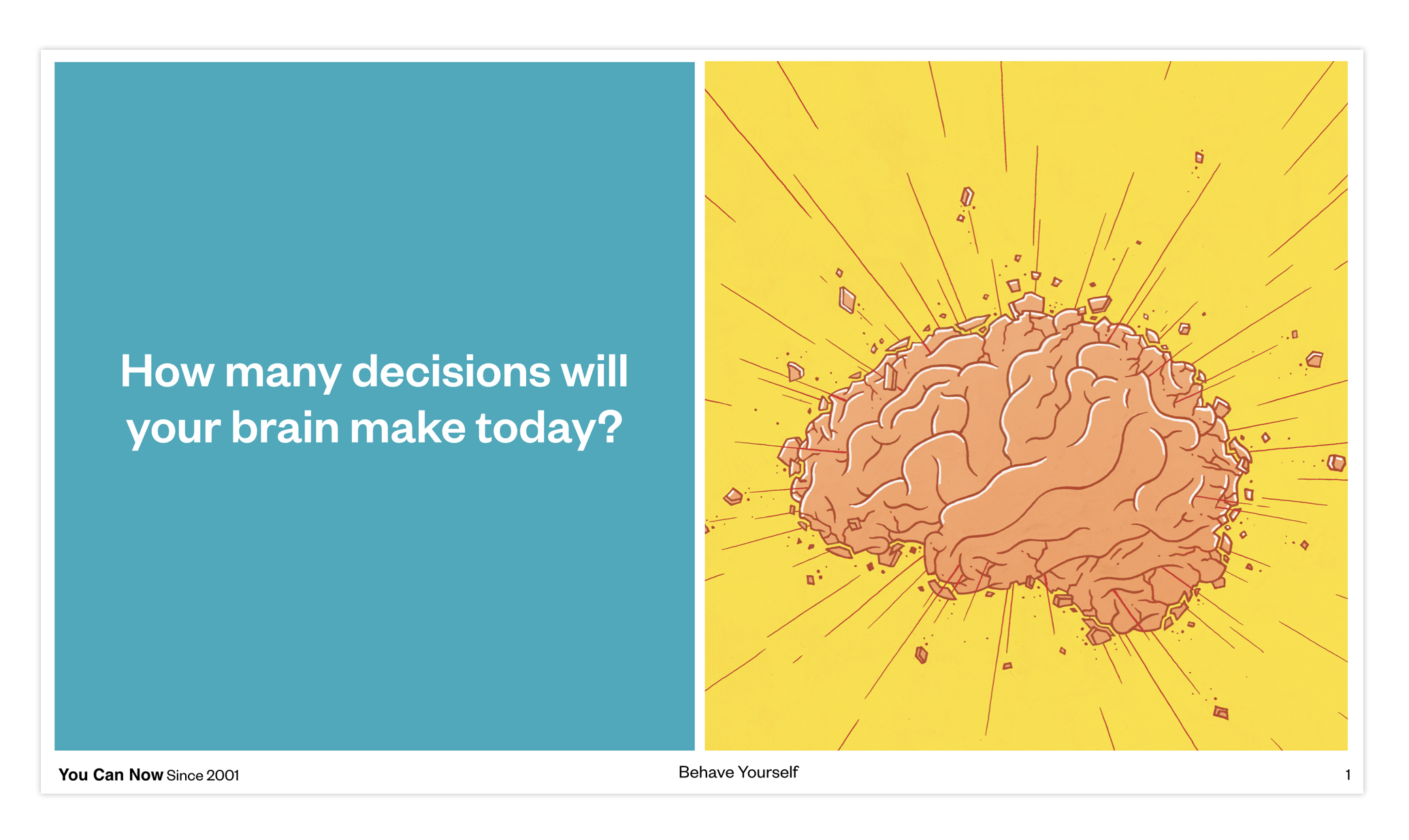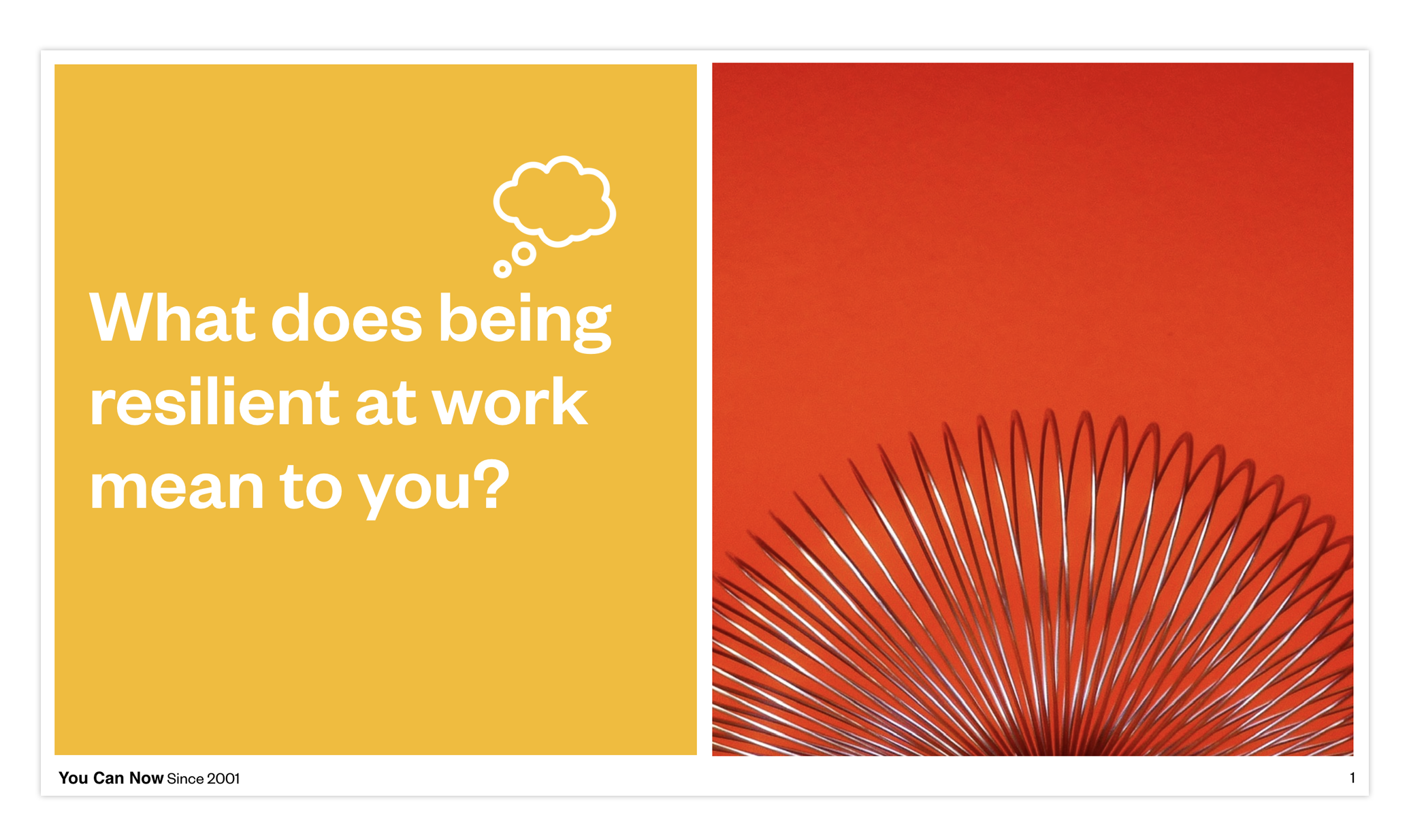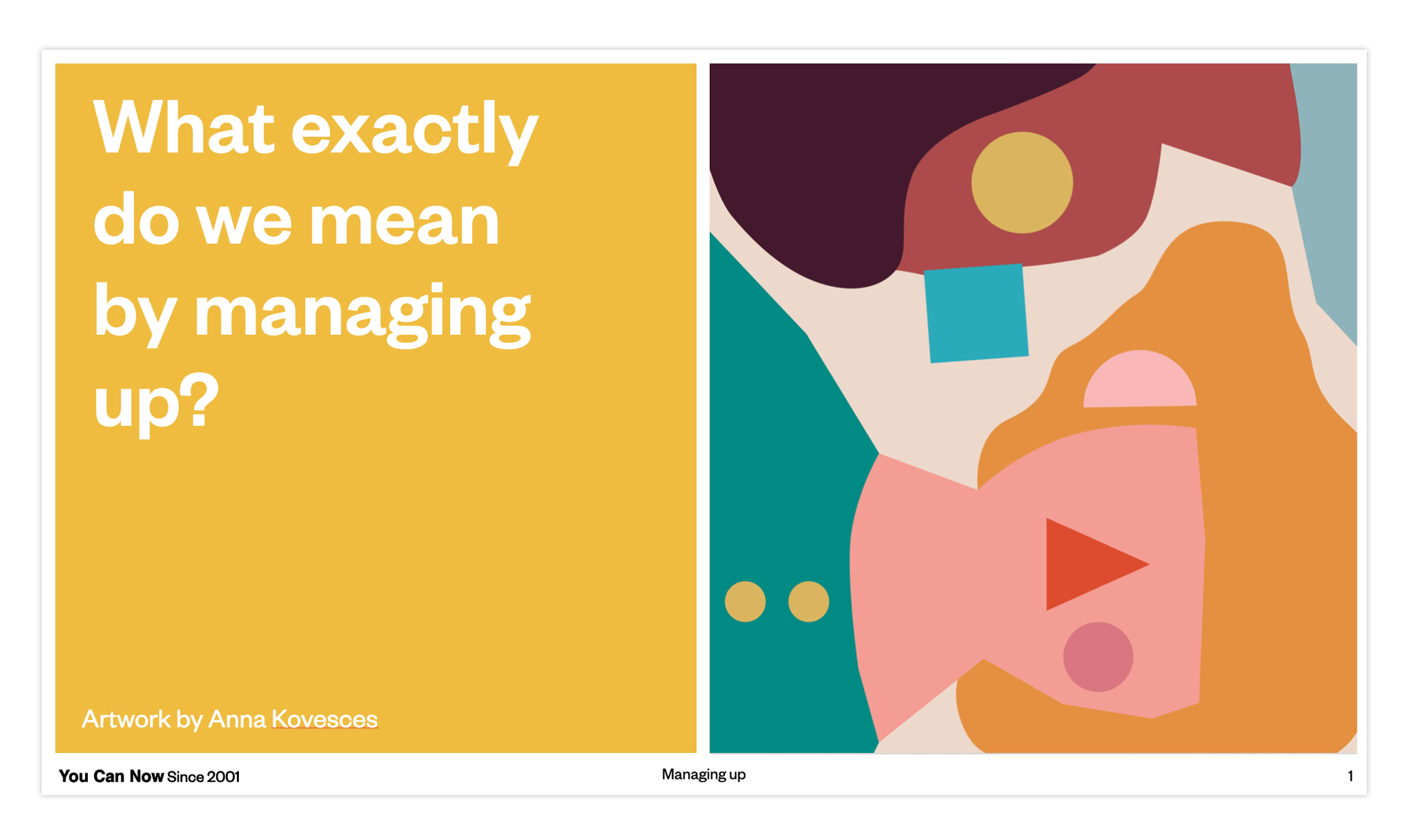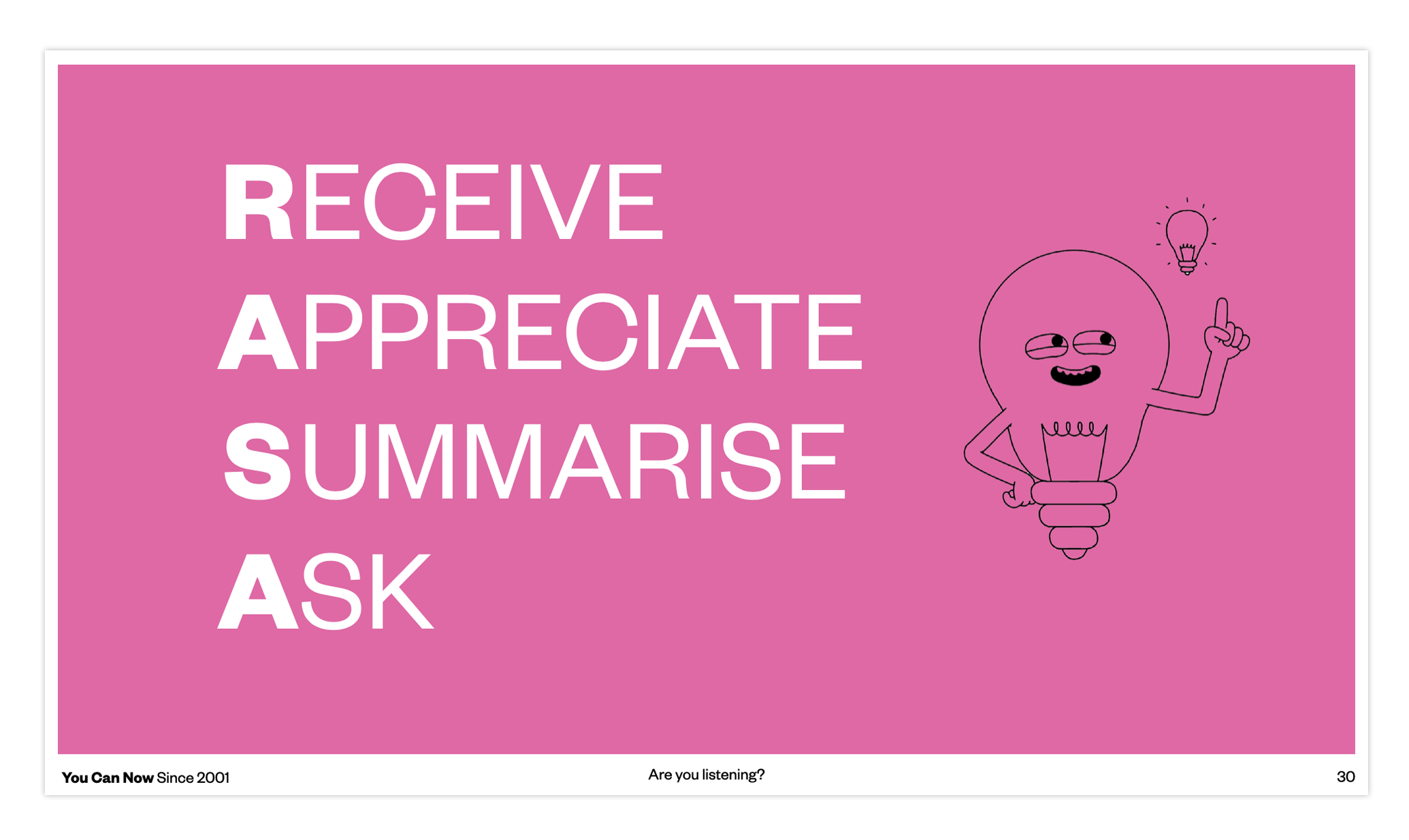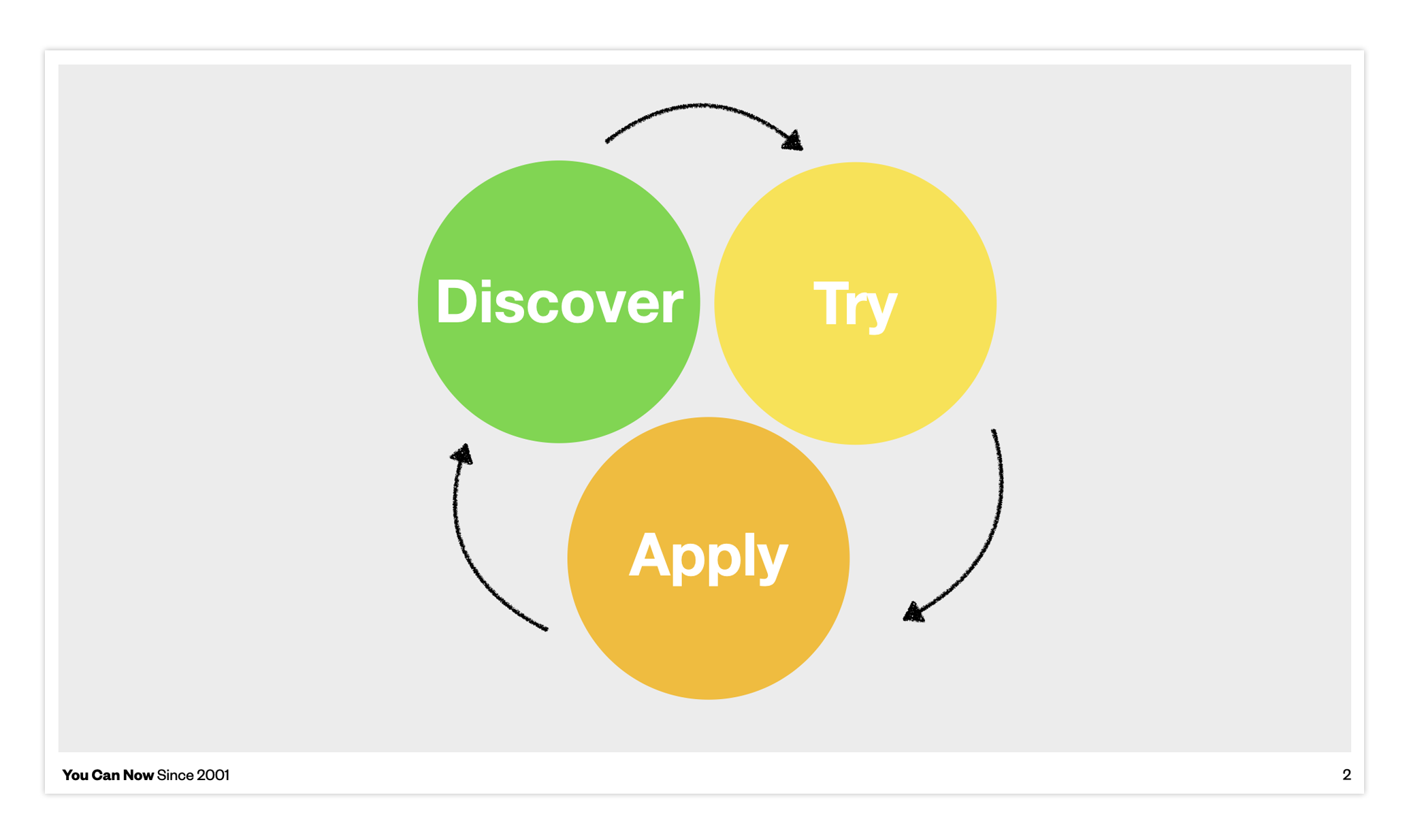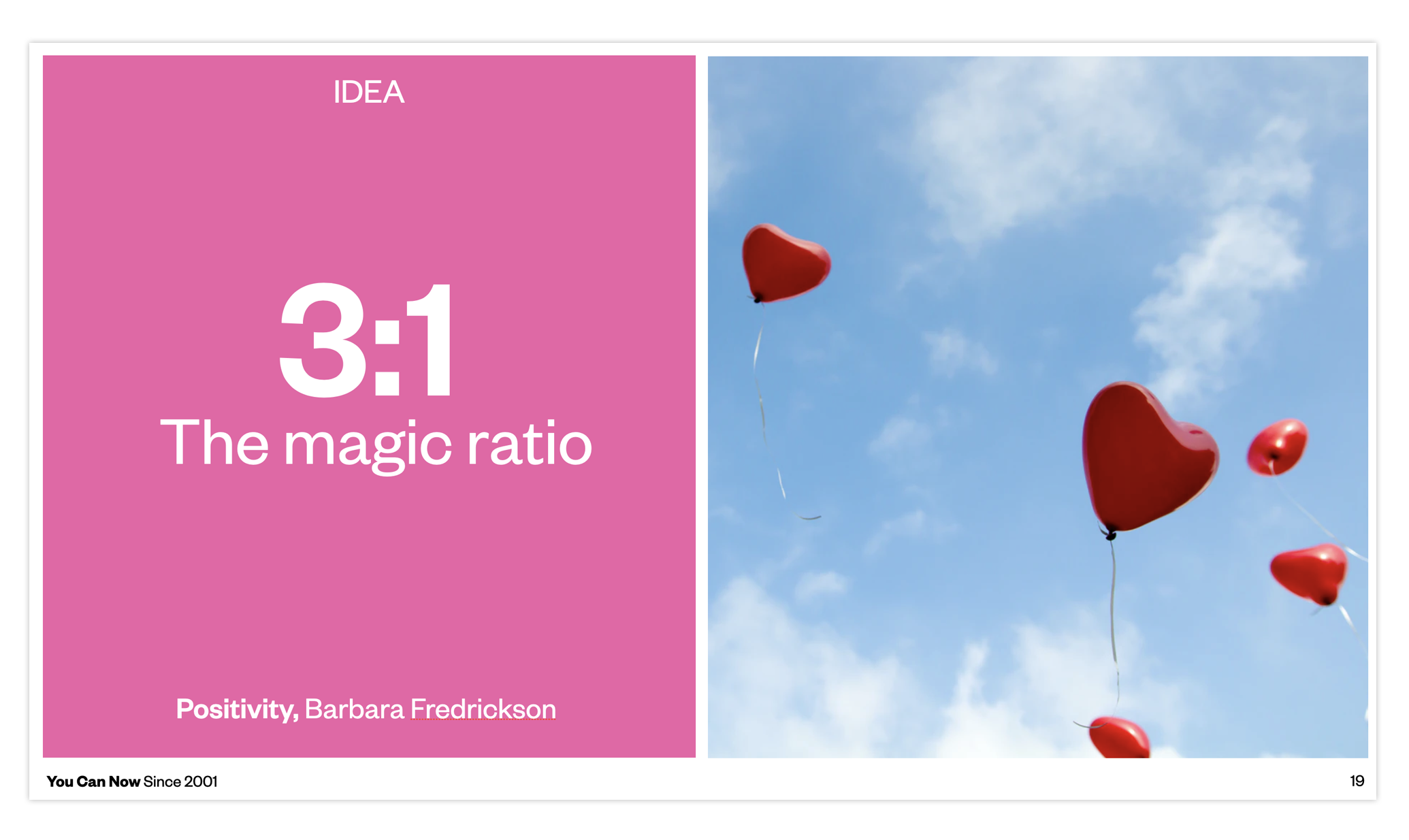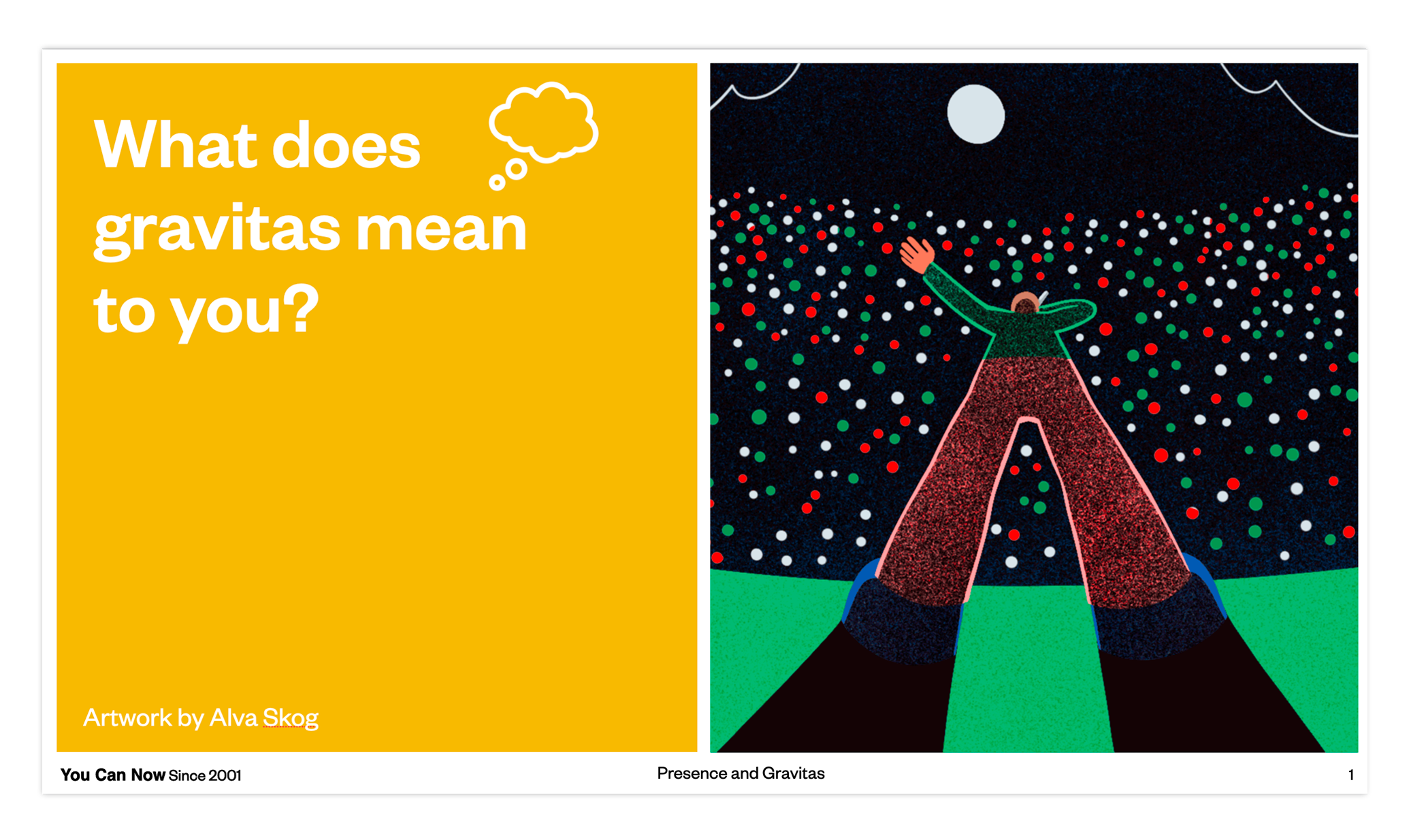Worksheets + Course packs
Course Pack: Conscious Inclusion
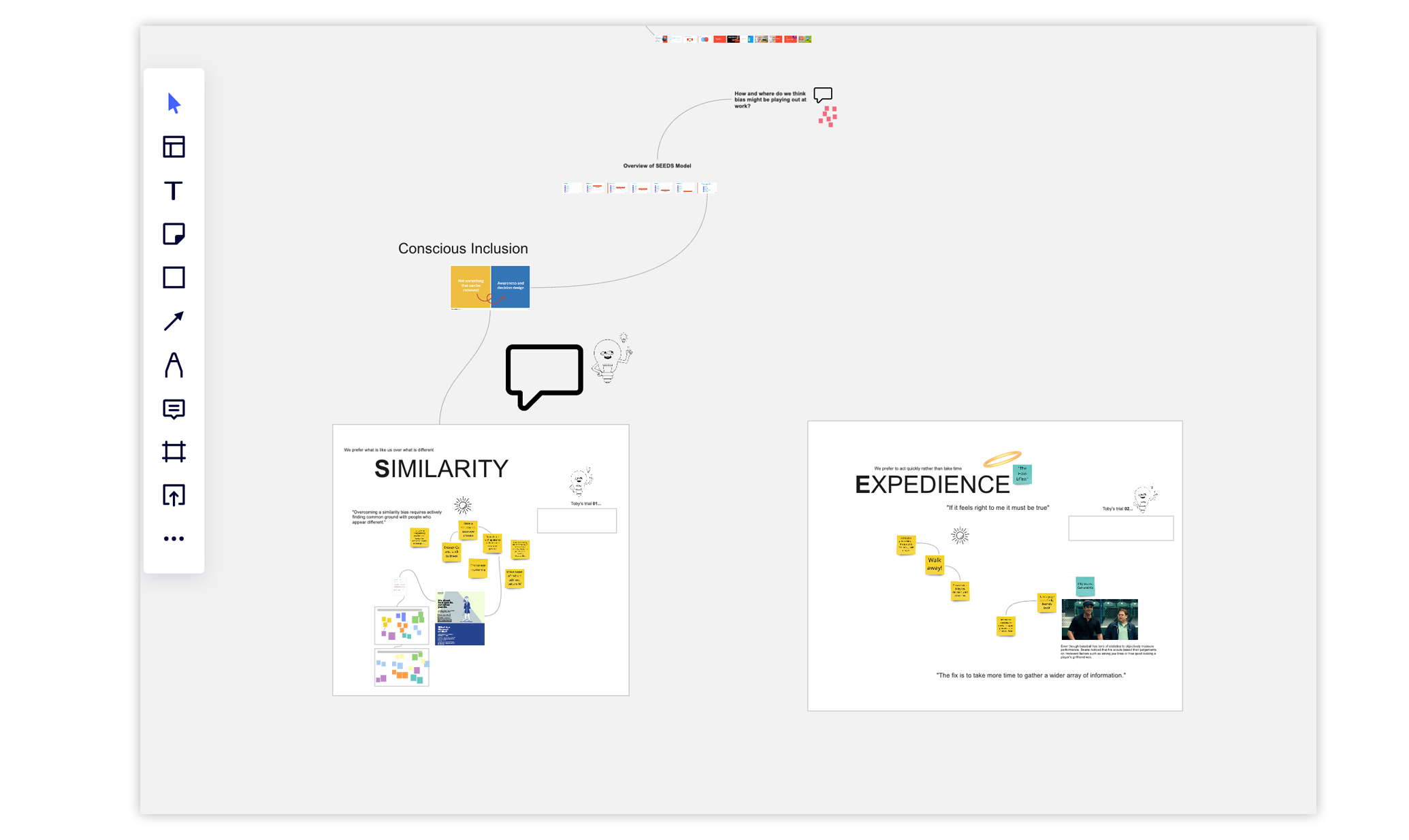
Curated resources
Read: Blindspots: Hidden Biases of Good People by Mahzarin R. Banaji and Anthony G. Greenwald
It's just as tempting to trust that our minds are bias-proof fortresses as it is to believe that all (and only) biased people are bad. But it's been proven time and time again that good people are just as susceptible to bias as anyone else. In this brilliant book, psychologists Mahzarin Banaji and Anthony Greenwald offer themselves as examples of said 'good people,' and discuss the importance of examining one's own behaviour to "outsmart the machine."
--
Do! The Implicit Association Test
This series of online tests, developed by Harvard in 2011, reveal the full extent of one's own unconscious biases by category; skin-tone, sexuality, weight, disability - the list goes on. It's an enlightening and often surprising experience, and the best first step towards recognising, then changing, your behaviour.
--
Watch: How to Outsmart Your Own Unconscious Bias (TEDx Talk)
As hard-wired into our brains as bias is (and always will be), speaker, CEO and former lawyer Valerie Alexander maps the route that businesses, politicians and people must take to eliminate the fear of difference: make the unexpected, expected.
"When we stop and examine our own behaviour, we can catch ourselves having different reactions to and expectations of people, simply because they don't look like us."
Read: 7 Practical Ways to Reduce Bias in Your Hiring Process.
Bias is always a dangerous thing to hold onto, but especially so when interviewing, recruiting and hiring. Research shows that candidates with white western names (Emily, John, etc.) are far more likely to be hired for a job than candidates with international names who hand in the exact same CV. Harvard Business Review have put together this article, outlining seven actionable steps to reduce bias in the hiring process, from the moment you write the job listing to the congratulatory phone call at the end.
--
Listen: reWorked podcast
The Equality Works group have set up this monthly podcast, inviting CEOs, workplace activists and HR leaders to discuss their journey to rework office and workspace culture and create a more inclusive environment for all. They're brilliant, and we particularly recommend episodes four, seven and ten from the second season; shorter, bitesized talks on unpacking unconscious bias in leadership and recruitment.
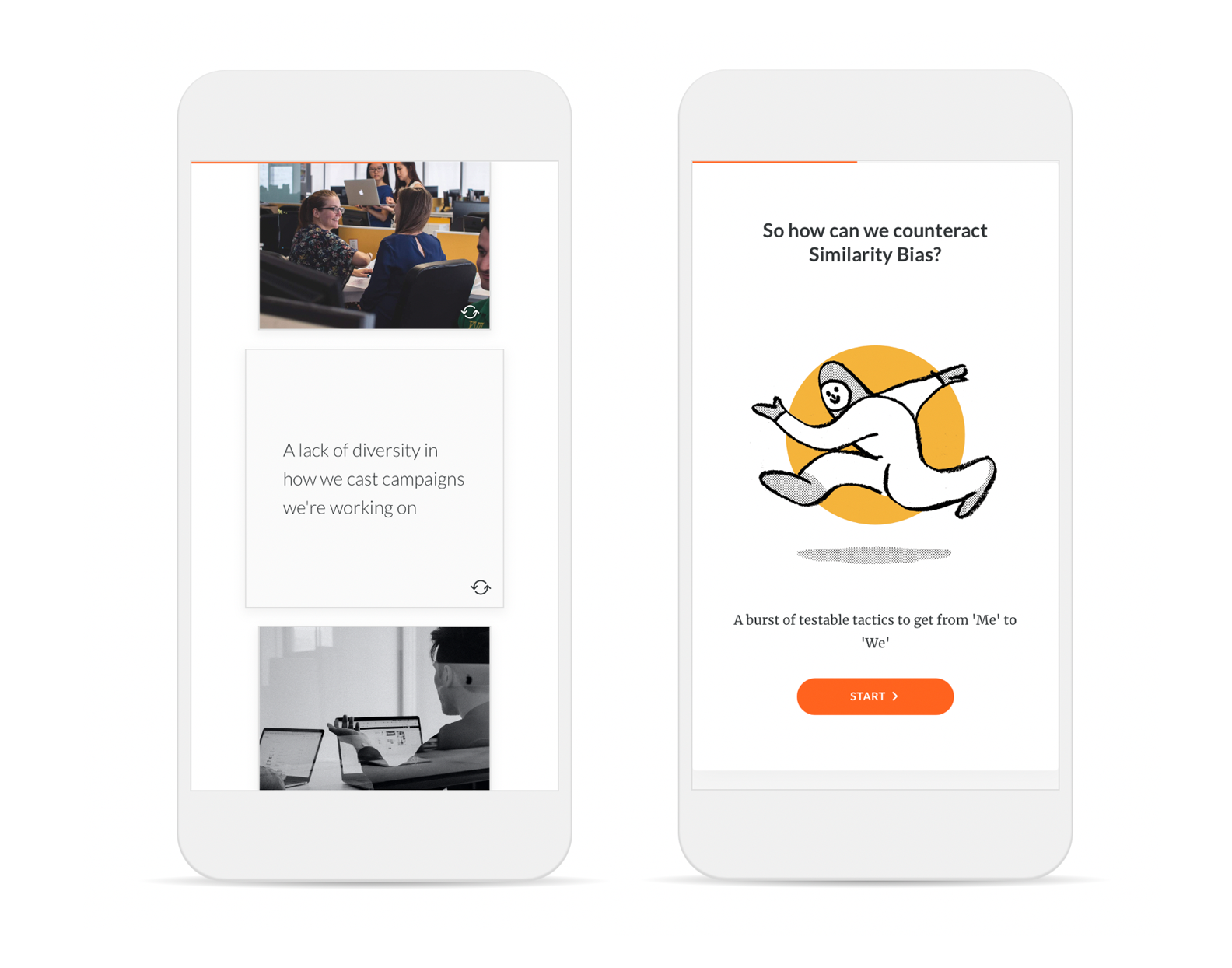
The Conscious Inclusion eCourse
This 30-minute eCourse, accessible on each and every device, is a great refresher on key conscious inclusion cornerstones; the neuroscience of bias, the S.E.E.D.S model, and the actionable and practical steps you can take to mitigate the damaging effects of bias. Take a look today to slow down your thinking before a meeting, an interview or any context where conscious inclusion is crucial.
Read: Unconscious Bias Training that Works (HBR)
Unconscious bias has disastrous results when handled poorly; a 2006 study showed that poor training actually decreases the likelihood of BAME workers progressing in an organisation. Good UB training, however, cultures employees that challenge unconscious bias for the rest of their lives. In this article from HBR, professors Gino and Coffman lay out exactly what goes into UB training that works; for everyone and forever. Read here.
--
Watch: How to Get Serious About Diversity and Inclusion in the Workplace (TED Talk)
Executive speechwriter and activist Janet Stovall poses this question to her audience: What do we do when a salesperson consistently falls short of their target. "We fire them." Why should it be any different with those accountable for inclusion and diversity figures? In her insightful, entertaining TED talk, Stovall talks about the need for 'single-mindedness,' and walks us through how to light a proverbial fire beneath those not taking inclusion seriously enough.
"Stare. At. Awesome. Black. People. Look at them directly in their faces and memorise them."
Confronting unconscious bias doesn't have to be daunting or scary, it can be empowering. Netflix's Vice President and head of Inclusion Strategy Vernā Myers suggests that the best way to change a negative association with a gender, sexuality, skin colour or ethnicity to a positive one, is to memorise, study and stand in awe of the people who flew in the face of the prejudice they faced.
Read: Do Listen by Bobette Buster
It's imperative that we act to mitigate bias, but where do we start? How about at the beginning: giving our full attention to the voices we've been ignoring for so long. Bobette Buster's punchy book talks us through this and a lot, lot more - offering practical, actionable advice to change how we listen, develop the tools to get outside our own heads, and find a new way forward.
--
Read: How to Be More Empathetic (NYT)
Another crucial skill in the fight against unconscious bias? Empathy. The New York Times have put together this visually stunning five-piece article on learnable empathy skills.
More For the Book Lovers
Rebel Ideas: The Power of Diverse Thinking - Matthew Syed
"Great Minds Think Unalike," says journalist, author and former olympic table tennis player Matthew Syed, whose latest book lays bare the importance of diverse minds working as a team.
--
Inclusive Growth - Toby Mildon
Our very own expert diversity coach and collaborator Toby Mildon's book brilliantly steps out how leaders can change workplace culture to 'future-proof,' their businesses.
--
Sway: Unravelling Unconscious Bias - Pragya Agarwal
Why do we believe what we believe? How can we be so clever and so thoughtless. Behavioural and data scientist Pragya Agarwal talks through the intricacies of social psychology to untangle those very questions.
--
Decisive: How to Make Better Decisions - Chip and Dan Heath
Sibling veteran co-authors Chip and Dan Heath explain how to make good decisions with a brain that's, by nature, riddled with natural defects.
--
Noise and Thinking Fast and Slow - Daniel Kahneman
Two fantastic books from Nobel prize winning economist and psychologist Daniel Kahneman that we highly recommend as a set. Thinking Fast and Slow explains how emotional thinking and logical thinking can so often bleed into one another, while Noise offers actionable advice to curb (as much as possible) that same cross-over.
--
Time to Think - Nancy Kline
Nancy Kline's seminal work states the case that thinking, managing and (most importantly) including better begins with learning a crucial and all too often overlooked skill - listening.
A Handful of Lateral Resources
Round-Robin Brainstorming
A clever, collaborative method for brainstorming sessions - develop multiple ideas simultaneously while ensuring that every voice (loud, quiet, confident or shy) is heard.
--
Mitchell on Meetings - What We Learned and Where It Led
David Mitchell's latest podcast mini-series, 'Mitchell on Meetings,' is brimming with insightful, witty observations about how we can make meetings work again. We liked it so much that we wrote-up some key takeaways, and turned them into actionable advice.
--
Encourage Diverse Perspectives with Edward de Bono's 'Six Thinking Hats.'
Another fantastic method to level the playing field in brainstorming sessions and meetings, and tease out each voice and every perspective.
Good to know
If you're keen to develop your listening skills, you can book into a coming live session — Are you Listening? — led by coach and facilitator Katy Kent. More on that here.
Our work around Neuroinclusion links nicely into many of the ideas explored in these resources. And you'll find our next live Neurodiversity Awareness sessions; both for managers and teams, right here.


